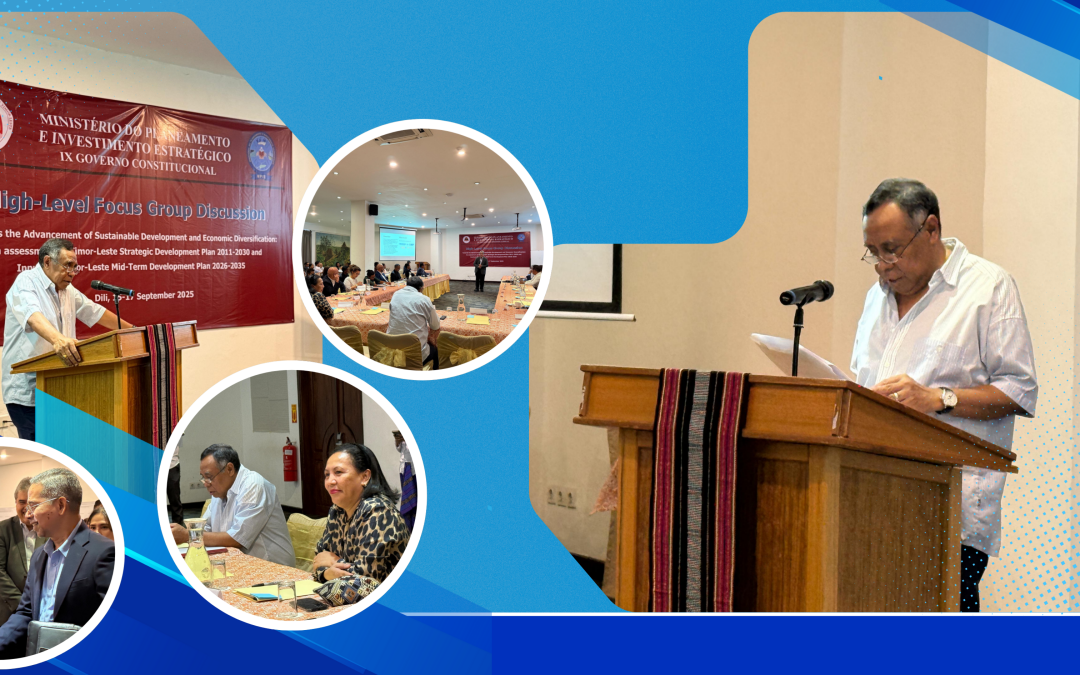DILI, TIMOR-LESTE — On September 15-17, 2025, the Ministry of Planning and Strategic Investment (MPIE) hosts a series of high-level focus group discussion (FGD) at Hotel Timor in Dili. The event, titled “High-Level Focus Group Discussion Toward the Advancement of Sustainable Development and Economic Diversification,” aims to assess the progress of the Strategic Development Plan (SDP) 2011-2030 and gather inputs for the forthcoming Medium-Term Development Plan (MTP) 2026-2035.
The discussion, as mandated by His Excellency Prime Minister Kay Rala Xanana Gusmão, focused on four priority pillars: human capital development, infrastructure, new sources of economic growth, and institutional governance. It will also address crucial cross-cutting issues like climate resilience, transparency, and social inclusion.
The Government of Timor-Leste, under the leadership of Prime Minister Kay Rala Xanana Gusmão, has commissioned a consortium to evaluate the SDP 2011-2030 and prepare inputs for the MTP 2026-2035. The initial findings from this consortium highlight significant progress in areas such as school enrolment and maternal health, but also point out persistent challenges. These challenges include fiscal volatility, limited employment opportunities, a structural reliance on petroleum revenues, and institutional fragmentation.
The FGD serves a clear purpose: to validate and enrich these initial findings and to begin shaping the policy directions for the new MTP. “The evaluation…is not merely an exercise in reporting achievements, but a moment of national reflection,” said Minister of Planning and Strategic Investment, His Excellency Gastão Francisco de Sousa. “Through this dialogue, we aim to ensure that our future development pathway not only incorporates lessons from the past but also responds to the demands of our people and builds a stronger foundation for sustainable and inclusive progress”.
The discussion brought together a diverse group of stakeholders, including ministers, technical experts, development partners, civil society representatives, and private sector leaders. Each group plays a critical role in contributing to the national development path. For instance, ministries will clarify sectoral priorities, experts will provide evidence-based analysis, and civil society and business actors will offer insights into the real needs and aspirations of the public.
This series of discussions is part of a broader national reform agenda. The MTP 2026-2035 offers a “historic opportunity” to recalibrate the state’s role from being the main economic actor to an enabler of private initiative, from fragmented planning to integrated governance, and from short-term spending to disciplined fiscal management.
The expected outcomes of the FGDs include generating clear, evidence-based insights that lead to concrete priorities, measurable targets, and credible policy options for the MTP. Ultimately, the goal is to forge a collective vision for a more inclusive, resilient, and diversified Timor-Leste.
The Ministry of Planning and Strategic Investment is a key governmental body in Timor-Leste responsible for the nation’s long-term and medium-term development planning and strategic investments.
